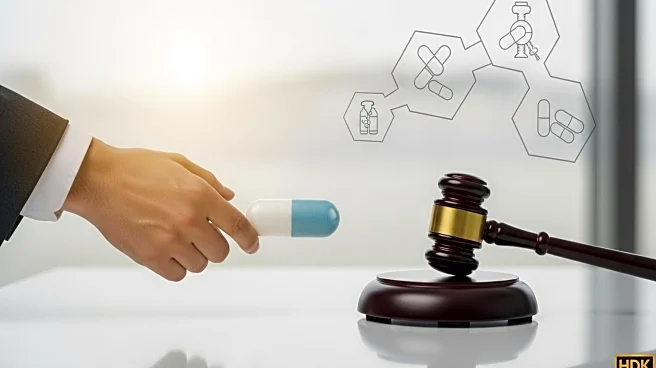What is the story about?
What's Happening?
The Trump administration has announced a deal with Pfizer that grants the pharmaceutical company a three-year exemption from planned tariffs. In exchange, Pfizer has agreed to voluntarily lower the prices of certain drugs for U.S. consumers. The agreement includes Pfizer's commitment to invest $70 billion in reshoring domestic manufacturing facilities. The deal aims to provide 'Most Favored Nation' pricing to Medicaid, matching the lowest prices offered in other wealthy nations. The announcement comes as the administration prepares to impose a 100-percent tariff on branded pharmaceutical products entering the U.S. unless companies build manufacturing plants domestically.
Why It's Important?
This agreement is significant as it addresses the dual challenges of drug pricing and domestic manufacturing in the pharmaceutical industry. By securing a tariff exemption, Pfizer can stabilize its operations and focus on reducing drug prices, potentially benefiting U.S. consumers. The deal also highlights the administration's strategy to use tariffs as leverage to encourage domestic investment. However, the broader impact on drug prices and the pharmaceutical market remains uncertain, as details of the agreement are vague and the response from other pharmaceutical companies is yet to be seen.
What's Next?
The Trump administration plans to continue negotiations with other pharmaceutical companies to secure similar agreements. The rollout of the tariffs and the specifics of the drug pricing reductions are still unclear, leaving room for further developments. Stakeholders, including political leaders and industry experts, will likely monitor the situation closely to assess the impact on drug prices and the pharmaceutical industry's investment in the U.S.















